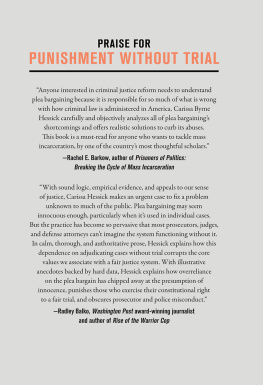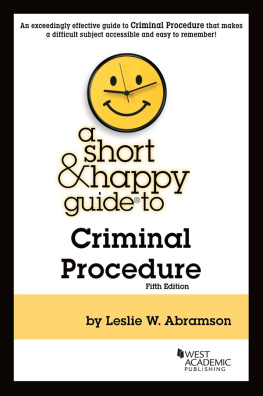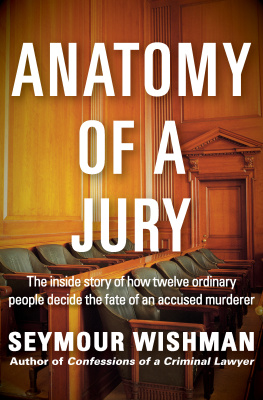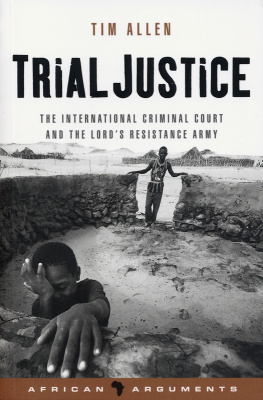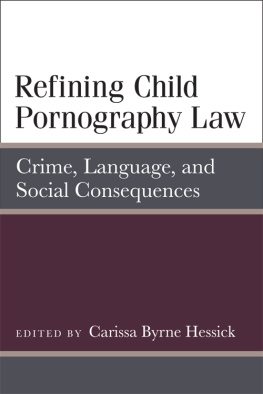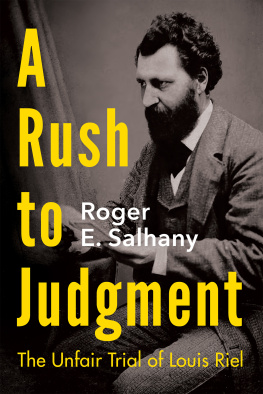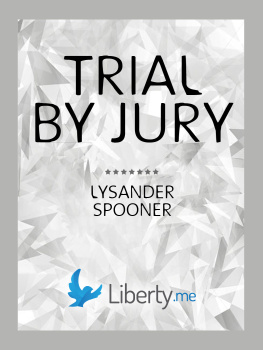Contents
Guide
Page List
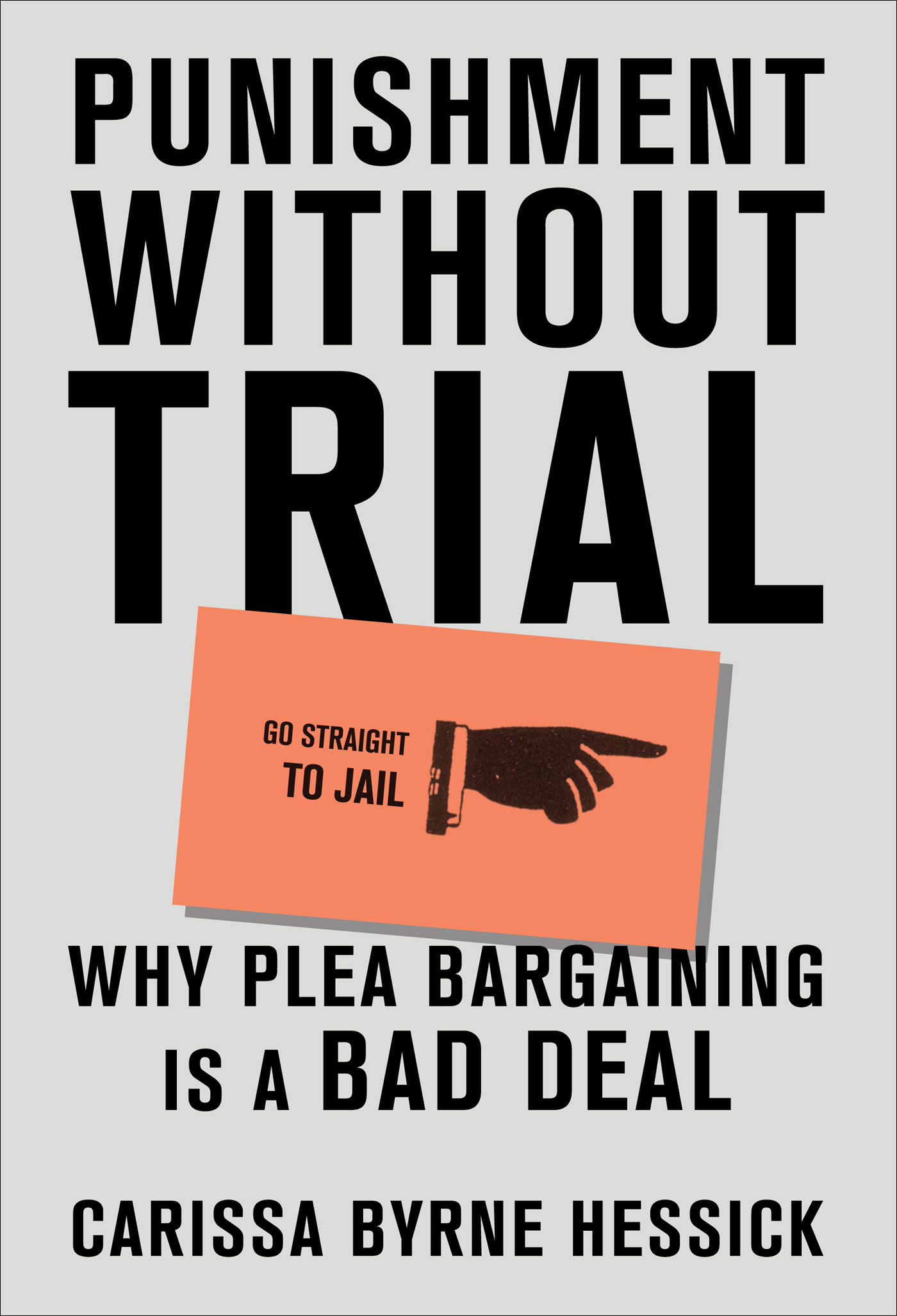

Copyright 2021 Carissa Byrne Hessick
Cover 2021 Abrams
Published in 2021 by Abrams Press, an imprint of ABRAMS. All rights reserved. No portion of this book may be reproduced, stored in a retrieval system, or transmitted in any form or by any means, mechanical, electronic, photocopying, recording, or otherwise, without written permission from the publisher.
Library of Congress Control Number: 2021934852
ISBN: 978-1-4197-5029-8
eISBN: 978-1-64700-103-2
Abrams books are available at special discounts when purchased in quantity for premiums and promotions as well as fundraising or educational use. Special editions can also be created to specification. For details, contact specialsales@abramsbooks.com or the address below.
Abrams Press is a registered trademark of Harry N. Abrams, Inc.

ABRAMS The Art of Books
195 Broadway, New York, NY 10007
abramsbooks.com
To Hattie and Dorothy, who have taught me the value of explaining complicated things in a simple way. And to Andy, who always does more than his fair share.
CONTENTS
Chapter 1:
Damians Story
Chapter 2:
The Rise of Plea Bargaining
Chapter 3:
Its a Business Decision
Chapter 4:
The Desire to Be Free
Chapter 5:
Legal Theft
Chapter 6:
The Process Is the Punishment
Chapter 7:
The Politics of Reform
Chapter 8:
The Costs: Truth and Justice
Chapter 9:
Possibilities for Change
Chapter 10:
Conclusion
CHAPTER ONE
DAMIANS STORY
When Damian Mills got a call from his cousin telling him that the police were looking for him, he was anxious. Damian knew that the police suspected him of committing some other crimes, but his cousin told him that the police wanted to talk to him about a murder. Damian wasnt always on the right side of the law, but he didnt know anything about a homicide.
When the police caught up to Damian, they accused him of being involved in the murder of a man named Walter Bowman. Walter was at his son Shauns house on the evening of September 18, 2000, when three men wearing bandanas and gloves burst in. The men shouted for everyone to get down. Walter, who was in the bedroom, was shot when one of the men fired a shotgun through the bedroom door. The masked men fled right after the shooting.
Sitting in an interrogation room weeks after the murder, Damian could see photos and other evidence from the crime scene that the police had hung on the walls. But he knew that he hadnt killed Walter Bowman. He had not been at Shaun Bowmans house, and he had not been involved in the shooting.
Some of the other people who supposedly committed the murder with Damian confessed. The police told Damian to confess too. The police told Damian various details about the murder. And they instructed Damian to tell them that other people in the group had done certain things the night of the shooting. Damian told the police that he couldnt tell them any of those things because they werent true.
The police arrested him anyway and sent him to jail. They kept Damian in an isolation unit, which separated him from everyone else at the jail, and he was allowed out of his cell for only one hour each day.
After spending two days in isolation, Damian was again interrogated by the police. They questioned him without a lawyer present, and they pressured him to say that he and his friends had been involved in Walter Bowmans murder. Damian knew that hed had nothing to do with the murder, but he was worried that the police were going to say he had pulled the trigger and killed Bowman. He was also overwhelmed from his time in isolation. So he confessed.
Damian couldnt afford a lawyer, and so the court appointed one for him. The lawyer told Damian that he had lost three cases just like his at trial, and so he recommended that Damian plead guilty.
Damian took his lawyers advice. He went to court. He told the judge that he wanted to enter an Alford plea, a special type of guilty plea that allows a defendant to be convicted without admitting that hed actually committed the crime. But the judge wouldnt let him. So Damian said he helped kill Walter Bowman and pleaded guilty to a murder he didnt commit. He served more than ten years in prison.
* * * * *
When I met Damian in his hometown in western North Carolina, I never would have guessed that he had been in prison. I was late to our meeting, and so I was a bit flustered. I apologized and explained that I was late because I had been dealing with my two strong-willed daughters. Damian was very kind. He had a daughter the same age as my oldest, and he was quick to relate. He smiled and laughed a bit as he told me about his daughter.
I could have had a similar conversation with any number of parents at my daughters school. Damian even looked like a few of the fathers Id met at school events. He wore glasses and a black T-shirt. Damians voice was soft and tinged with the Southern accent that Ive learned to love since moving to North Carolina a few years ago. And his face communicated that same mix of adoration and frustration that I see on other parents faces when we talk about our kids.
But Damians face soon lost that look as our conversation turned to his case. Any trace of a smile disappeared, and his answers became shorter and more halting as he spoke about pleading guilty to the murder of Walter Bowman.
After Walter Bowman was shot, police received tips about two different groups of people who supposedly committed the murder. The first group included a man whom police mistakenly thought was in jail, so they discounted that tip and focused on the second group. The tip about the second group didnt mention Damian, but it included people that he knew. When the police interviewed the people in the second group, they all denied any involvement in the death of Walter Bowman.
One of those people, Larry Williams, was only sixteen years old. Police interviewed him twice, and he denied any involvement in the shooting. When police interviewed Larry a third time, he again denied having anything to do with Walter Bowmans death. Then the Buncombe County sheriff, Bobby Medford, showed up. Everyone except Sheriff Medford left the interrogation room, and then Medford proceeded to scream at Larrywho didnt have a lawyer or an adult with him in the roomtelling him that he would spend the rest of his life in prison if he didnt confess to the murder and implicate others. Sheriff Medford then got Larry to agree that he was involved in the murder. The sheriff used a series of leading questions to feed Larry details about the murder, including that Damian was involved.
Right after his confession, Larry told other police officers that hed lied: everything hed said about the murder was just because Sheriff Medford had terrified him. But by then it was too late. Police had one false confession, and they used that confession to get false statements from eyewitnesses and confessions from the other men in the group.
But the truth was that the other group of men about which police had gotten a tipthe group that the police did not focus onhad committed the murder.

